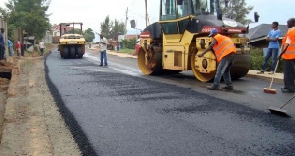A 100-million dollar sugar processing plant is to be established in the country by 2012, the first since the collapse of the Asutsuare and Komenda Sugar factories after the overthrown of the Nkrumah regime more than four decades ago.
To be sited in Tema within the Free Zone enclave, the plant will have an initial capacity of450, 000 tonnes, to be increased to 650,000 tonnes later.
The main raw material, raw sugar in syrup form, will however be imported rather than produced locally, according to the sponsors, Cargil International, a Swiss based company which already has a cocoa processing plant in Ghana.
Ghana is the sixth largest importer of sugar in the world.
The Chief Executive Officer of the Ghana Investments Promotion Centre (GIPC), George Aboagye, who disclosed this to the Times yesterday said GIPC was facilitating the necessary permits and other relevant formalities for the establishment of the plant.
He said officials from the company were expected in the country next month to inspect a designated site, with construction work expected to commence in October.
Throwing more light on why the project would depend on imported raw material, Mr Aboagye said a study conducted by Cargill revealed that it was not economically viable to venture into sugar-cane plantations locally, despite the country's favourable weather conditions.
The CEO of GIPC, who seemed to agree with the investors, said "although Ghana's weather is tropically conducive for such plantations, the plant does not necessarily have to be integrated,” citing countries that import cocoa beans, for example, to feed their plants.
He explained that prevailing economic conditions were not favourable for local sugar-cane plantations to feed plants, saying it would lack the capacity to compete with raw sugar exporting countries.
He said the Asutsuare and Komenda sugar plants did not succeed because their establishment was not based on the recommended factors for siting of industries.
Besides, they were bedeviled by mismanagernent which made them produce under capacity and, therefore, became economically unviable. They were eventually diversified in the early 1990s.
But Mr Aboagye said notwithstanding their present status, Asutsuare and Komenda could be converted into small-scale units for the production of ethanol.
Ghana currently spends about 500 million dollars annually to import 300,000 tonnes of sugar, but if the proposed plant comes on stream, it can produce in excess of that demand.
Mr Aboagye said there were many other investment projects in the offing, particularly in the agriculture, real estates, oil and gas and services sectors.
General News of Wednesday, 19 May 2010
Source: Times
















